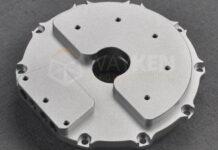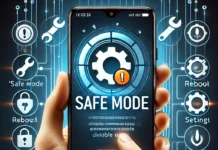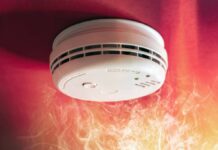With inflation surpassing wage growth, more and more people are trying to find ways to save money. Two options are to cut down on energy usage and avoid unnecessary expenses. You might think getting a home security system is a luxury you can’t afford.
The cost associated with the installation and servicing is just too much for some households. But you know deep down that the peace of mind that home security systems can provide is invaluable. So, you ask yourself — will the cost be worth it?

What to Consider Before Investing in a Home Security System
If the well-being and safety of your loved ones and assets are at stake, you will want to find a reliable home security system to give you the protection you need. Here are four things you should consider before investing in a home security system.
1. Determine What’s on Offer
An ideal home security system should do more than alert you if there’s an intruder. It’s highly recommended to go for packages that monitor your home environment, digital assets, and specialized installations.
The Nest air monitor is more than just a smoke detector, as it can also screen for carbon monoxide levels. You can read more about reviews of Nest home security online to learn more. If your home security system can protect you even when a fire breaks out, it is a much more worthwhile investment.
2. Compare Wireless or Hard-Wired System
Ask yourself if you would prefer a wireless home security system or a hard-wired one. A wireless system leverages radiofrequency technology to create a small cellular network throughout your home so it can transmit alarms. It is easy to install and portable.
On the other hand, a hard-wired system involves drilling holes in your walls, as it uses the wiring of your telephone line to communicate. The cameras, sensors, and other pieces you wish to include in your home security system are connected through tangible wires to send information back to the central control panel.
In some designs, it relays alerts to an outside monitoring center. These cables running into your walls and ceilings make it difficult to set up, but it may be more dependable than a wireless option.
3. Find Out Accessibility and Monitoring Capabilities
A modern home security system provides access to the internet. Home automation should allow you to log in and check your home from anywhere in the world. With some packages, you can control your lights and other aspects of your home environment.
It’s also a good idea to have your alarm system hooked up to the home security system company. There will be a small additional charge every month. But professional monitoring allows the company to dispatch the police to your residence once the alarm is triggered. This isn’t precisely a necessity but could be exceptionally beneficial if you are not home or your life is in danger.
4. Check if the Plan Includes Fall Protection
One valuable extension of some home security plans is the ability to detect if you or your loved one has fallen over. The technology will track faces and identify if a person has moved past a certain angle.
The system will alert the neighbors or the authorities to get immediate assistance. Some designs can even monitor heart rate to catch if you are experiencing any difficulties.
Wrapping it Up:
It is crucial to choose a high-quality home security system to keep your family and possessions secure. Find time to research the reputation of each potential supplier or manufacturer. Also, visit social media sites and online forums to get a glimpse of their customer satisfaction ratings. These steps will help you choose the plan that’s right for you.
















